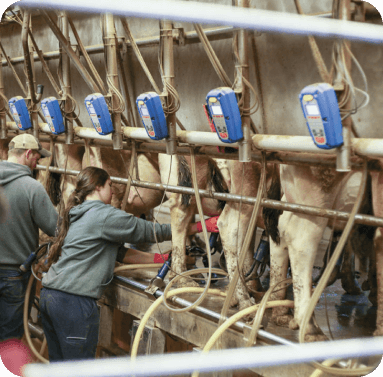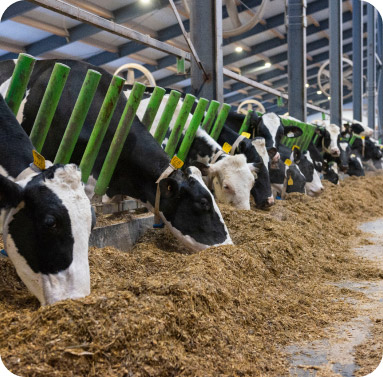5 Preventive Actions to Avoid Economical Losses in the Summer
As the summer season approaches, with its promise of high temperatures and increased humidity, the risk of heat stress among farm animals becomes a pressing concern for farmers. Heat stress can significantly impact animal welfare, productivity, and overall farm profitability. To mitigate these risks, proactive maintenance actions are essential in preparing for the warmer months. Here is a small guide of maintenance actions that can help ensure animals remain comfortable and safe.
Ventilation and Cooling
Systems Check-up
Begin with a thorough inspection and maintenance of the farm’s ventilation and cooling systems. Ensure that all fans, vents, air inlets, evaporators and mister are working efficiently and are free from obstructions. Cleaning fan blades and replacing any faulty motors can improve air circulation significantly and testing these systems before the peak heat can ensure they are ready to function at full capacity when required.
Water System Management
Confirm that all animals have easy access to clean, fresh water. Inspect water lines, troughs, and dispenser for leaks and blockage. In some cases, incorporating water cooling systems that can lower the temperature of the drinking water may be beneficial, as cool water plays a crucial role in helping animals to regulate their body temperature.
Nutrition and
Feeding Strategy
Adjust feeding times by providing feed during cooler times of the day, such as early morning or late evening, to reduce the metabolic heat produced by digestion during the hottest hours. Also, consult a nutritionist to adjust the diets of livestock during summer months, possibly incorporating additives in the feed or in the water to mitigate the effects of heat stress.
Building and
Shelter
Maintenance
Check and improve the insulation of animal housing to reduce heat absorption. Applying reflective paint or materials to roofs can deflect sunlight and help keep interiors cool.
Emergency Plans
Implement a plan for monitoring animals for signs of heat stress, including increased respiration rate, lethargy, or reduced feed intake. Emergency measures may include temporary relocation of animals to cooler areas, the use of emergency cooling equipment, increased water supply, or the adoption of liquid nutrition solutions. In that case, make sure you have the necessary liquid supplements in stock before heat waves.
By taking theses proactive maintenance actions, farmers cans significantly reduce the risk of heat stress affecting their livestock during summer months. Not only does this protect the animal’s health and well-being, but also safeguard the farm’s productivity and economic viability. Being one step ahead from heat ensures that both livestock and farmers can have a more comfortable, stress-free summer.
Suggested video:
your rep
to call you
back



